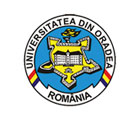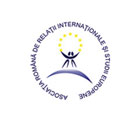The Evaluation of Cross-Border Cooperation in the EU
Secțiunea curentă: Courses
17 iunie 2015
Communication in the evaluation of public programmes and policies
Communicating the evaluation results is an essential part of a project or program as it can alter the way the partners and the public react to it. The role of communication in this process is to build a relationship between the involved actors that leads to exchange of information defined by quality, creating a cooperative an participative environment based on trust and respect. This will offer better results in the evaluation process and will help find the best solutions for improving the policy or program that is analyzed.
Academic aim: getting accustomed with fundamental concepts of the communication process and the types of communication strategies used in public policies and programs evaluation
Learning objectives: this course aids in the learning of abilities and competences specific to a specialist in evaluation: efficient team work, knowledge of media resources and using them to generate publicity for an organisation, an event, the ability to handle an imagi crisis situation, knowledge about the steps used in a efficient presentation, familiarity with nonverbal language and elements that define an organisation’s identity.
Structure of the course:
- Communication and information
- Types of communication, tools and supports
- Verbal and non-verbal communication
- Communicating the results of evaluation
- Actors involved in the communication of evaluation
- The image in communication
- The communication plan
Bibliography:
- Alkin, Marvin C., Christina A. Christie and Mike Rose, „Communicating Evaluation” in Ian Shaw, Jennifer Greene, Melvin Mark, The SAGE Handbook of Evaluation, London: SAGE Publications Ltd., 2006
- Bovee C., Thill J., Schatzman B., Business Communication Today, Prentice Hall, New Jersey, 2003
- Charvin, François, Marhuenda, Jean, Communication et entreprises, Editions Eyrolles, Paris, 1991
- Cismaru, D., Comunicarea internă în organizaţii, Editura Tritonic, Bucureşti, 2008
- Hannum, Kelly M. and Jennifer W. Martineau, Evaluating the Impact of Leadership Development, Center for Creative Leadership, San Francisco: Pfeiffer, 2008
- Lyons Morris, Lynn, Carol T. Fitz-Gibbon, Marie E. Freeman, How to Communicate Evaluation Findings, California: SAGE Publications Inc., 1987
- Maruitte, Dominique, „Le plan de communication interne, challenge du DRH”, în Communiquer, 1989
- McCain, Donald V., Evaluation Basics, American Society for Training and Development, 2005
- OECD, Evaluating Development Activities. 12 Lessons from the OECD DAC, 2013, http://www.oecd.org/dac/peer-reviews/12%20Less%20eval%20web%20pdf.pdf
- Phillips, Jack, Wayne Brantley and Patricia Pulliam Philips, Project Management ROI: A Step-by-Step Guide for Measuring the Impact and ROI for Projects, New Jersey: John Wiley & Sons, Inc., 2012
- Şoproni, Luminiţa, Comunicare şi negociere în afaceri, Editura Universităţii din Oradea, 2002
- Şoproni, Luminiţa, Tehnici de expresie şi comunicare internaţională, Editura Universităţii din Oradea, Oradea, 2007







